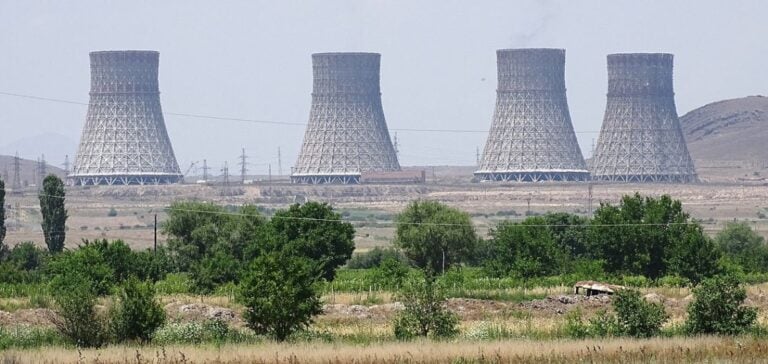Armenia is stepping up its efforts to boost energy security by setting up a state-owned company to explore and manage the construction of a new nuclear power plant.
The initiative is designed to replace the existing Metsamor-2 plant, which is scheduled to reach the end of its useful life in 2036.
The project comes at a time when energy independence is becoming a strategic priority, particularly in the face of regional geopolitical challenges.
The mission of the new entity is to evaluate technological proposals and select partners capable of providing the best solutions for the planned reactor.
The diversification of suppliers, including American, French and South Korean players, reflects a change in Armenian energy policy, historically dominated by Russian technology.
This shift is partly motivated by the deterioration in relations between Yerevan and Moscow, exacerbated by a perceived lack of support during the recent Karabakh conflict.
Financial and technical challenges
One of the main obstacles to this project is financing.
The Armenian government is considering state borrowing to finance this strategic infrastructure, a method already used by other nations for similar projects.
Armenia’s sustained economic growth, estimated at 8.7% in 2023, could make it easier to obtain such financing.
On a technical level, the integration of a new nuclear unit into a relatively modest national power grid, with an installed capacity of 4 GW, raises questions.
Production costs, particularly for small modular reactors, are also being closely scrutinized by experts.
However, maintaining employment in the nuclear sector is a key issue, as the country risks losing a highly skilled workforce if the transition to a new reactor is not assured.
Geopolitical and social implications
The adoption of a new nuclear power plant is accompanied by major geopolitical considerations.
Armenia has learned lessons from past energy blockades, such as those imposed by Azerbaijan and Turkey in the 1990s, which highlighted the country’s vulnerability to interruptions in energy imports.
In this context, nuclear power offers a relatively independent source of energy, less subject to fluctuations in external supplies.
The choice of technology for this new reactor is also a diplomatic issue.
Although Rosatom remains a key player due to the nuclear infrastructure already in place in Armenia, advanced discussions with other suppliers reflect a desire to diversify partnerships and reduce dependence on Russia.
This pragmatic approach could enable Armenia to strengthen its position on the regional energy scene, while ensuring continuity in energy production.
In short, the creation of this public company marks a decisive step in Armenia’s energy strategy.
The challenges ahead are many, from securing financing to managing the social impact, but the objective remains clear: to guarantee a reliable, independent source of energy for decades to come.






















